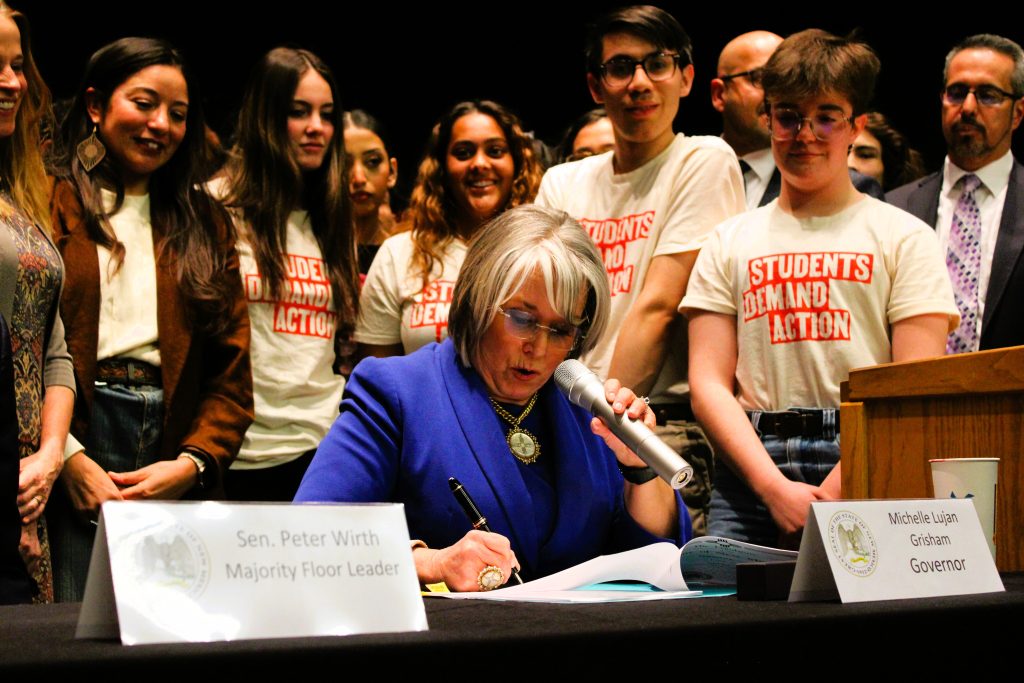Starting next year, the Internal Revenue Service will no longer collect the names of major donors to thousands of nonprofit organizations, from the National Rifle Association to the American Civil Liberties Union to the AARP. Democratic members of Congress and critics of money in politics blasted the move, announced last week by the Treasury Department, the IRS’ parent agency. The Democrats claim the new policy will expand the flow of so-called dark money — contributions from undisclosed donors used to fund election activities — in American politics. For their part, Republicans and conservative groups praised the decision as a much-needed step to avoid chilling the First Amendment rights of private citizens.
The Supreme Court’s decision in Citizens United unleashed these groups, typically organized as 501(c)(4) nonprofits, to spend unlimited amounts of money on campaign ads. Their role in American politics has grown increasingly central. In theory, the new IRS policy could have a significant impact on the tax agency’s ability to detect improper contributions — and thereby curb illegal campaign spending.
But in practice, even critics acknowledge that the IRS very rarely audits nonprofits. In other words, the IRS will no longer receive information that it was seemingly making little use of. And the information in question was already shielded from the public’s view.
Up to now, IRS regulations have required all types of nonprofits to report the names and addresses of each major donor, as well as the dollar amount the donor contributed that year, on their tax returns. But the IRS can override this reporting requirement in certain cases when it finds that the information is “not necessary for the efficient administration of the internal revenue laws.”
That’s what the IRS did last week — relieving most nonprofits, excluding 501(c)(3) charities and foundations, of the need to report the names and addresses of major donors. “The IRS simply does not need tax returns with donor names and addresses to do its job in this area,” Treasury Secretary Steven Mnuchin said in a press release.
The Treasury Department pointed to 2015 changes to the tax code that exempted from taxation many gifts or contributions to nonprofits. Without the need to ensure that donors were paying taxes on their contributions, the department reasoned, there was no need for the identities of the donors.
Critics of the move, however, question the sincerity of that rationale. They note that a number of largely conservative organizations, like those affiliated with billionaire brothers Charles and David Koch, have lobbied Congress and the Trump administration to eliminate this reporting requirement since 2017. Treasury’s “narrow argument that the gift tax has been eliminated so they don’t need this for the specific purpose of enforcing tax law — given the timing, that’s problematic,” said Brendan Fischer of the watchdog group Campaign Legal Center.
The Treasury also cited a more partisan reason for the decision: “Conservative tax-exempt groups were disproportionately impacted by improper screening in the previous Administration.” Allegations during the Obama administration that IRS officials had subjected Tea Party groups seeking tax-exempt status to improper scrutiny touched off a political firestorm that led several senior IRS officials to resign.
But a Treasury Department inspector general report ultimately found that both conservative and liberal groups had been subject to such IRS scrutiny and that it had occurred during both the Bush and Obama administrations.
It remains unclear the extent to which the IRS’ decision will reduce oversight of election spending. As ProPublica and others have documented, nonprofits have become a common vehicle for election spending while shielding their donors from public view.
What the IRS makes public about donors to nonprofits, including those involved in political activities, however, has always been fairly limited. The public sees only the number of major contributors and how much each gave in a year. The identities of the donors are redacted. Still, journalists and groups like the Center for Responsive Politics have used the specific quantities contributed by individual donors — even without knowing who the donor is — to guide research on money in politics.
Under the new IRS policy, the public will still have access to this information, according to the Treasury Department. “The same information about tax-exempt organizations that was previously available to the public will continue to be available,” Mnuchin said.
Critics of the new policy have also argued that the IRS decision will limit the agency’s ability to detect illegal political contributions by foreign nationals. It’s legal for foreign nationals to donate to nonprofits, though federal election law bars them from spending money to influence American elections. Pressreports suggest federal investigators are probing whether Russian nationals funneled campaign contributions through the NRA. (The NRA has denied the allegation.)
These critics note that, even though staffing and budget shortfalls have led the IRS to do little policing of nonprofit contributions, that doesn’t excuse further hampering its potential to do so. “The IRS was already a toothless watchdog,” said Robert Maguire, who investigates politically active nonprofit groups at the Center for Responsive Politics. “Now it will also become a deaf and blind watchdog.”
Supporters of the new policy counter that it’s not the IRS’ job to enforce campaign finance laws and that there are limits on sharing tax information with government agencies responsible for enforcing those laws, the Federal Election Commission and the Justice Department. Where there is suspicion of an improper donation, they say, the IRS still has the ability to investigate by requesting information from the nonprofit.
“Even if there was a possible improper donation, a more appropriate data request (that honors First Amendment associational rights) would be for the IRS to only ask for donation information from suspect sources, not everyone,” David Keating, the president of the Institute for Free Speech, wrote in an email.
Still, the change means it’s one step more difficult for the IRS to take action, in those rare cases when it’s inclined to do so.
ProPublica is a Pulitzer Prize-winning investigative newsroom. Sign up for their newsletter.























